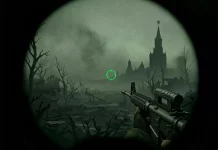By EUvsDisinfo
As Moldova prepares for its parliamentary elections on September 28, the country is facing an unprecedented wave of hybrid threats and FIMI. The Kremlin-backed propaganda is amplified through media outlets and social media networks tied to the so-called Matryoshka network, distributing fake content to erode support for President Maia Sandu and derail Moldova’s path toward EU integration.
The growing volume and scale of disinformation attacks have been noted by civil society observers as well as the authorities. In a recent interview, Moldova’s Minister of Internal Affairs Daniela Misail-Nichitin referred to a coordinated effort to shift public opinion on social media. “The purpose of these actions is clear and I believe each of us realises it, it is the intention to change the European course of the country,” she commented.
Why Moscow targets Moldova
Russia has long viewed Moldova as a strategic buffer zone, which is incompatible with deepening EU ties of both Ukraine and Moldova. Another reason Moscow sees Moldova as part of geopolitical interests is that installing a pro-Russian government in Moldova could enable Russia to use it as a base for hybrid attacks on the neighbouring countries. Russia has also not abandoned its sinister plans to annex these regions one day, as suggested by a map recently spotted in the office of the Russian Defence Ministry.
Analysts point out that Kremlin policymaking on Moldova is centralised under Sergei Kiriyenko, a top Kremlin official overseeing Russia’s relations with former Soviet republics. Kiriyenko is reportedly involved in crafting disinformation campaigns using websites that impersonate news outlets and coordinated bot networks. His appointment is widely seen as a signal that Moscow intends to escalate its influence operations in the country.
Weaponising fear: FIMI tactics before the vote
The Kremlin is no stranger to manipulating elections either at home or abroad, and this time, it appears to be going all out. Bloomberg has uncovered Russian plans to intervene in the parliamentary elections through recruiting Moldovan voters abroad, staging violent protests within the country, and launching a widespread disinformation campaign on social media.
The social media campaign has been going on for months. Investigative reports by Ziarul de Gardă and international cybersecurity firm Insikt Group have recently detailed the methods that Russian FIMI networks such as Matryoshka and Operation Overload use to disseminate pro-Kremlin narratives ahead of the elections. Ziarul de Gardă documented how activists affiliated with the Victorie Bloc, a Eurosceptic and pro-Moscow party, controlled by sanctioned oligarch Ilan Șhor, received daily training on “information warfare,” including instruction on how to present divisive narratives “so carefully that people have the impression it was not you who told them, but that they thought of it themselves” – and on how to play on people’s fears. Ziarul de Gardă also reports that multiple groups were assigned to target different regions of Moldova – for example, the Gagauzia region had a separate curator coordinating the FIMI operations.
Narratives deployed online often seek to exploit and amplify fears of war, as evidenced by the recent claims that the EU wants to use Moldovans to fight against Russia after ‘’running out of Ukrainians’’, or that President Sandu plans to send troops to Ukraine, turning Moldovans into “cannon fodder”. The Kremlin’s propaganda apparatus has also deployed a wide range of narratives recycled from previous campaigns on Ukraine, including allegations that EU membership would erode national identity and force “foreign values” on Moldovan society, false reports of economic collapse under Sandu’s leadership, or accusations of corruption. Personal attacks on Maia Sandu have reached rock bottom – narratives claim that she was “diagnosed” with schizophrenia or that she illegally bought sperm samples from gay celebrities for her alleged female partner.
The messaging has frequently targeted older, Russian-speaking citizens, who are more vulnerable to nostalgic narratives about the illusion of Soviet-era stability and anti-Western sentiment. However, experts note that propaganda efforts have recently expanded to younger audiences, who are now being targeted on TikTok with AI-generated content. A BBC investigation uncovered a network of TikTok accounts that collectively amassed tens of millions of views – the U.S.-based Digital Forensic Research Lab (DFRLab) estimates that the network may be even larger, generating 55 million views since January, according to BBC.
Another recent shift in strategy is the direct launch of narratives by Russian officials, particularly MFA spokesperson Maria Zakharova. Russia’s Foreign Intelligence Service SVR is also actively spreading disinformation about the upcoming elections. Most recently, it falsely claimed that NATO is massing forces in Ukraine to invade Moldova and suppress protests after the vote.
When debunking spreads the lie
Moldovan institutions have introduced several countermeasures. These include blocking channels involved in information manipulation, engaging social media platforms as well as raising awareness about the threat of election related disinformation. Civil society organisations, such as the Association of Independent Press and StopFals.md, are also actively involved in media literacy and fact-checking initiatives.
However, disinformation continues to outpace the capacity of fact-checkers. Moreover, the disinformation ecosystem has adapted: fact-checking is now sometimes used as a tactic to amplify falsehoods, as debunked stories are picked up and repeated by mainstream outlets. This is often the way the Matryoshka campaign operates – asking media outlets, and fact-checkers to verify their own fake content and thus inviting its amplification. Moldova has become a testing ground for evolving Russian information warfare techniques.
Moldova’s democratic stress test – and what it means for Europe
We’re witnessing a litmus test for the resilience of democracy under sustained Russian interference. In her speech in the European Parliament, President Maia Sandu referred to the “full arsenal of hybrid attacks” that the Kremlin has unleashed on Moldova and said: “If our democracy cannot be protected, then no democracy in Europe is safe.”
By EUvsDisinfo





